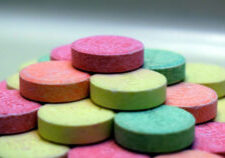Eosinophilic Esophagitis (EoE)
Eosinophilic esophagitis (e-o-sin-o-FILL-ik uh-sof-uh-JIE-tis) is a build-up of white blood cells (eosinophils) in the lining of the esophagus (tube that connects your mouth to your stomach). The disease is becoming more common, similar to the increase in people affected by asthma and allergies. As an inflammation, it can be painful and often manifests itself with a variety of symptoms.
Eosinophilic esophagitis symptoms
- Stomach ache
- Difficulty swallowing
- Gastroesophageal reflux disease (GERD) symptoms that don’t respond to medication:
- Heartburn
- Burping
- Vomiting
- Chronic cough
- Poor weight gain in children
- Anemia
Can EOE be caused by allergies?
It can also be associated with underlying conditions such as allergies.
In more than half of pediatric cases of EOE, allergies are the major cause and when allergies are identified, their treatment may lead to dramatic improvement in eosinophilic esophagitis and even its resolution.
Foods that are commonly found to be responsible for EOE may include milk, wheat, corn, but other foods may also contribute.
Can allergy drops help improve eosinophilic esophagitis?
Sublingual immunotherapy for eosinophilic esophagitis addresses both environmental and food allergies and can be especially beneficial for children with eosinophilic esophagitis because of its safety profile and increased adherence rates. Eosinophilic esophagitis in children is likely to be associated with conditions such as asthma, nasal polyps and chronic sinusitis, which can be avoided with early diagnosis and immunotherapy treatment.









